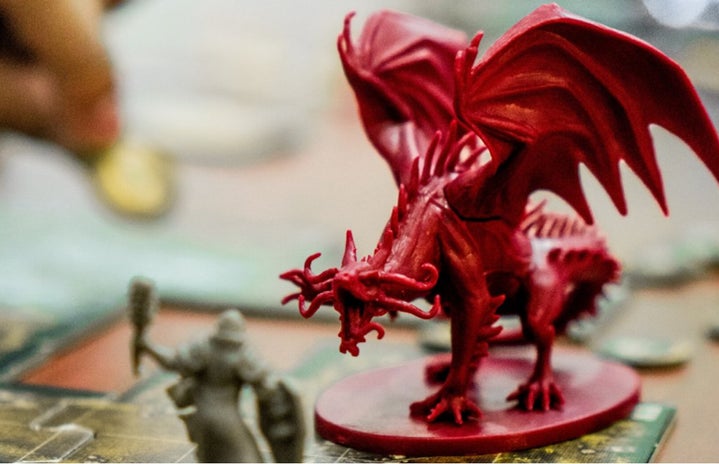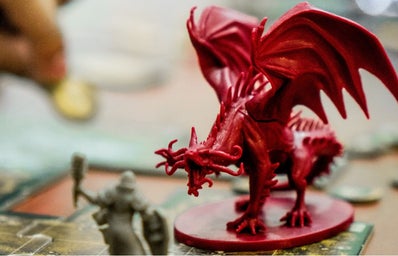When you think of Dungeons & Dragons, what do you think of? Total nerd dudes that dress up in Renaissance-esk clothing and fight with styrofoam swords in random parks? If you’re anything like me circa a year and a half ago, that’d be your answer. In some cases, this wouldn’t be wrong; many people do like to dress up as their fantasy characters and role play with prop weapons. Most of the time though, a typical D&D group is simply a group of 4-8 people sitting around a table, or computer screens as of currently, rolling dice, eating good food, and pretending to be a magic user or incredibly skilled swordsman.
Ever since D&D came out in the 1970s, people have been quick to group it in the list of games that no “cool” people would ever play. It lives on players creating fantasy characters like wizard elves or halfling warlocks, and then being able to portray them in role play while the person running the game, its Game or Dungeon Master, paints out an epic adventure, monsters, and emotion. In my opinion, those “cool” people are exactly the ones that sit down with a group of friends or strangers and play out a story of their own.
If you like any sort of role-play based video game, or RPG, fantasy books or movies (fun fact: Lord of the Rings was one of the inspirations for D&D!), or mythology, I promise that you’d enjoy D&D. For any that might be newly informed of this type of RPG, let me give a little overview of what you could expect in a typical game.
The first step of any RPG is to create the character that you will be embodying throughout the quest. Similar to many video games, you first pick the race and the class that you want to play. Race of a character tells the physicality of them — for example, do you want to play a human, an elf, or go super different and choose a goblin or a build that has demonic lineage such as a tiefling. Next is class. There are magic users, fighters that don’t use magic, and sometimes you can mix a bit of both for a little extra added fun. Of course, there are many more options than the few I listed above.
After this, as long as you have a set group, get your hands on a set of dice (which, if you’re playing with experienced players, you’ll have no problem acquiring a set or two) you’re pretty much set! There are rules you can reference from online player’s handbooks, but the easiest way to learn is through playing.
If you’re worried about being confused on how to play, don’t worry! I have been playing a campaign with a group of good friends for over a year now and had absolutely no idea what I was doing at first. Everyone I have ever played a game with has always been super welcoming and accommodating for new players.
If you’re like me and have found yourself to have fallen in love with fantasy or mythological stories, the decision to find a group to play with will be one of the best you’ll ever make. Not only do you experience a story while it is being created, but also you are a huge part of that creation and decide exactly how insane that story can become. And if this sounds daunting, there are quite a few shows and podcasts that you can enjoy following along with a D&D campaign full of incredible players.
Some recommendations:
Shows — Critical Role on Twitch or Youtube or Dimension 20 on Dropout TV or Youtube
Podcasts— Not Another D&D Podcast on Spotify and Join the Party on Spotify (this one has episodes specifically for explaining the basics of how to play)


